Mirror (Russian: ???????, translit. Zerkalo; known in the United States as The Mirror) is a 1975 Russian art film directed by Andrei Tarkovsky. It is loosely autobiographical, unconventionally structured, and incorporates poems composed and read by the director's father, Arseny Tarkovsky. The film features Margarita Terekhova, Ignat Daniltsev, Alla Demidova, Anatoli Solonitsyn, Tarkovsky's wife Larisa Tarkovskaya and his mother Maria Vishnyakova. Innokenty Smoktunovsky provides voiceover and Eduard Artemyev the incidental music and sound effects.
| Mirror | |
|---|---|
RUSCICO DVD cover | |
| Directed by | Andrei Tarkovsky |
| Produced by | Erik Waisberg |
| Written by |
|
| Starring |
|
| Narrated by |
|
| Music by | Eduard Artemyev |
| Cinematography | Georgi Rerberg |
| Edited by | Lyudmila Feiginova |
Release date |
|
Running time | 106 minutes |
| Country | Soviet Union |
| Language | Russian, Spanish |
| Budget | SUR 622,000 |
Mirror is structured in the form of a nonlinear narrative. It unfolds as an organic flow of memories recalled by a dying poet (based on Tarkovsky's own father Arseny, who in reality would outlive his son by three years) of key moments in his life both with respect to his immediate family as well as that of the Russian people as a whole during the tumultuous events of the twentieth century. In an effort to represent these themes visually, the film combines contemporary scenes with childhood memories, dreams, and newsreel footage. Its cinematography slips, often unpredictably, between color, black-and-white, and sepia. The film's loose flow of visually oneiric images, combined with its rich – and often symbolic – imagery has been compared with the stream of consciousness technique in modernist literature.
The main concept of Mirror dates as far back as 1964. Over the years Tarkovsky wrote several screenplay variants, at times working with Aleksandr Misharin. Their mutually developed script initially was not approved by the film committee of Goskino, and it was only after several years of waiting that Tarkovsky would be allowed to realize the project. At various times the script was known under different names, most notably Confession and A White, White Day. The completed film was initially rejected by Goskino, and after some delay was given only limited release in the Soviet Union.
Mirror initially polarized critics and audiences, with many considering its narrative to be incomprehensible. The work has grown in reputation since its release, and ranked nineteenth in Sight & Sound's 2012 critics' poll of the best films ever made, and ninth in the directors' poll. It has also found favor with many Russians for whom it remains their most beloved of Tarkovsky's works.
Screenplay
Structure and content
Mirror depicts the thoughts, emotions and memories of Alexei, or Alyosha (Ignat Daniltsev), and the world around him as a child, adolescent, and forty-year-old. The adult Alexei is only briefly glimpsed, but is present as a voice-over in some scenes including substantial dialogue. The structure of the film is discontinuous and nonchronological, without a conventional plot, and combines incidents, dreams and memories along with some news-reel footage. The film switches among three different time-frames: prewar (1935), war-time (1940s), and postwar (1960s or '70s).
Mirror draws heavily on Tarkovsky's own childhood. Memories such as the evacuation from Moscow to the countryside during the war, a withdrawn father and his own mother, who actually worked as a proof-reader at a printing press, feature prominently.
Synopsis
The film opens with Alexei's adolescent son Ignat (also played by Ignat Daniltsev) switching on a television and watching the examination of a stammerer by a physician. After the opening titles roll, a scene is set in the countryside during prewar times in which Alexei's mother Maria (Margarita Terekhova) — also called Masha and Marusya — talks with a doctor (Anatoli Solonitsyn) who chances to be passing by. The exterior and interior of Alexei's grandfather's country house are seen. The young Alexei, his mother and sister watch as the family barn burns down. In a dream sequence Maria is washing her hair. Now in the postwar time-frame, Alexei is heard talking with his mother Maria on the phone while rooms of an apartment are seen. Switching back to the prewar time-frame, Maria is seen rushing frantically to her work-place as a proof-reader at a printing press. She is worrying about a mistake she may have overlooked, but is comforted by her colleague Liza (Alla Demidova), who then abruptly reduces her to tears with withering criticism. Back in postwar time, Alexei quarrels with his wife, Natalia (also played by Margarita Terekhova), who has divorced him and is living with their son Ignat. This is followed by news-reel scenes from the Spanish Civil War and of a balloon ascent in the U.S.S.R. In the next scene, set in Alexei's apartment, Ignat meets with a strange woman (Tamara Ogorodnikova) sitting at a table. At her request, Ignat reads a passage from a letter by Pushkin and receives a telephone call from his father Alexei. The strange woman vanishes mysteriously. Switching to war-time, the adolescent Alexei is seen undergoing rifle training with a dour instructor, intercut with news-reel footage of World War II and the Sino-Soviet border conflict. The reunion of Alexei and his sister with their father (Oleg Yankovsky) at war's end is shown. The film then returns to the quarrel between Alexei and his wife Natalia in the postwar sequence. Switching again to prewar time, vistas of the country house and surrounding countryside are followed by a dreamlike sequence showing a levitating Maria. The film then moves to the postwar time, showing Alexei apparently on his death-bed with a mysterious malady. The final scene plays in the prewar time-frame, showing a pregnant mother, Maria, intercut with scenes showing Maria young and old. (Old Maria is played by Tarkovsky's own mother, Maria Vishnyakova.)
N.B. Several of the characters are played by the same actors.
- Filipp Yankovsky as the child Alexei
- Ignat Daniltsev as the adolescent Alexei and Ignat, Alexei's son
- Innokenty Smoktunovsky as the adult Alexei (voice only)
- Margarita Terekhova as the young Maria/Masha/Maroussia, Alexei's mother, and Natalia, Alexei's wife
- Maria Vishnyakova as the elderly Maria
- Oleg Yankovsky, Alexei's father
- Alla Demidova as Liza, Maria's friend at printing house
- Anatoly Solonitsyn as Forensic doctor & pedestrian
- Tamara Ogorodnikova as Nanny and Strange woman at the tea table
- Larisa Tarkovskaya as Nadezhda, Alexei's neighbor
- Arseny Tarkovsky as Narrator/Poet (voice only)
- Olga Kizilova as the redhead girl
Writing
The concept of Mirror dates as far back as 1964, when Tarkovsky wrote down his idea for a film about the dreams and memories of a man, though without the man appearing on screen as he would in a conventional film. The first episodes of Mirror were written while Tarkovsky was working on Andrei Rublev. These episodes were published as a short story under the title A White Day in 1970. The title was taken from a 1942 poem by his father, Arseny Tarkovsky. In 1968, after having finished Andrei Rublev, Tarkovsky went to the cinematographer's resort in Repino intending to write the script for The Mirror together with Aleksandr Misharin. This script was titled Confession and was proposed to the film committee at Goskino. Although it contained popular themes – for example, a heroic mother, the war, and patriotism – the proposal was turned down. The main reason was most likely the complex and unconventional nature of the script. Moreover, Tarkovsky and Misharin clearly stated that they did not know what the final form of the film would be – this was to be determined in the process of filming.
With the script being turned down by the film committee, Tarkovsky went on to make the film Solaris. But his diary entries show that he was still eager to make the film. Finally, the script was approved by the new head of Goskino, Filipp Ermash in the summer of 1973. Tarkovsky was given a budget of 622,000 Soviet ruble and 7500 metres (24,606 feet) of Kodak film, corresponding to 110 minutes, or roughly three takes assuming a film length of 3000 metres (10,000 feet).
Several versions of the script for Mirror exist, as Tarkovsky constantly rewrote parts of the script, with the latest variant of the script written in 1974 while he was in Italy. One scene that was in the script but that was removed during shooting was an interview with his mother. Tarkovsky wanted to use a hidden camera to interview her on the pretext that it was research for the film. This scene was one of the main reasons why Vadim Yusov, who was the camera-man for all of Tarkovsky's previous films refused to work with him on this film. At various times, the script and the film was known under the titles Confession, Redemption, Martyrology, Why are you standing so far away?, The Raging Stream and A White, White Day (sometimes also translated as A Bright, Bright Day.). Only while filming Tarkovsky decided to finally title the film Mirror. (The final film does indeed feature several mirrors with some scenes shot in reflection.)
A poster of Tarkovsky's 1966 film Andrei Rublev is seen on a wall. Mirror thus forms the third part, together with Tarkovsky's previous film Solaris which was made in 1972 and which references Andrei Rublev by having an icon made by him being placed in the main character's room, in a series of three films by Tarkovsky referencing Andrei Rublev.
Casting
Initially, Tarkovsky considered Alla Demidova and Swedish actress Bibi Andersson for the role of the mother. In the end Margarita Terekhova was chosen.
Filming
Principal photography began in late July 1973 and ended in March 1974. Outdoor scenes were shot in Tutshkovo near Moscow and the indoor scenes were shot at the Mosfilm studio. The naturalist style of the film required Margarita Terekhova to forego makeup completely.
The completed film was initially rejected by Filipp Ermash, the head of Goskino in July 1974. One reason given was that the film is incomprehensible. Tarkovsky was infuriated about this rejection and even toyed with the idea of going abroad and making a film outside the Soviet Union. Mirror was ultimately approved by Goskino without any changes in fall 1974.
This section needs expansion. You can help by adding to it. (December 2012) |
Mirror never had an official premiere and had only a limited, second category release with only 73 copies. Although it was officially announced for September 1975, it was shown as early as March 1975.
When Mosfilm critics were asked in November 1974 to evaluate Mirror, responses were divided. Some viewed it as a major work that would be better understood upon the analysis of future generations; others dismissed it as an unfocused failure and believed that even more cultured viewers would find its story opaque. This resulted in a very limited distribution. Many audience members walked out of theatrical screenings, but those who approved of the work were ardent in their praise. In a 1975 article for The New York Times, James F. Clarity reported that "in the first round of published reviews, in which some of Mr. Tarkovsky's fellow film makers evaluated his new work, there is much praise, tempered with criticism of some parts of the film." Goskino did not allow it to be shown at the Cannes Film Festival. The managing director of the festival, Maurice Bessy, was sympathetic to Tarkovsky. Upon hearing that Mirror would not be allowed to be shown in Cannes, he unsuccessfully threatened not to take any other Soviet film.
Mirror is now frequently listed among the greatest films of all time. In a 2012 Sight & Sound directors' poll, Mirror ranked as the 9th greatest film of all time. In a parallel poll by film critics, the film ranks at No. 19. In 2012, Will Self argued that it remains 'the most beautiful film ever made'. Peter Bradshaw of The Guardian called it "a startling piece of film-making" and described many of its images as "transcendentally brilliant". In the British Film Institute, the film is billed as "a work of cumulative, rhythmic effect" and its unconventional narrative is c
Watch movie The Mirror 1975 Film online on Amazon
Watch movie The Mirror 1975 Film online
Watch The Movie On PrimeBulandi Full HD Movie Download
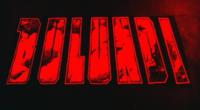
Amar Akbar Anthony Full HD Movie Download
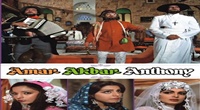
Champion Full HD Movie Download

Pyar Ki Jeet (1986) Full HD Movie Download
.jpg)
Char Darvesh Full HD Movie Download
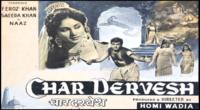
Paap Ki Duniya Full HD Movie Download
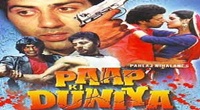
Romeo Full HD Movie Download

Meri Marzi (2011) Full HD Movie Download
.jpg)
Donga Police Full HD Movie Download
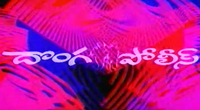
Sasural Full HD Movie Download
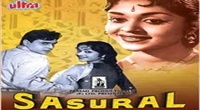
Shri Ramanjaneya Yuddham Full HD Movie Download
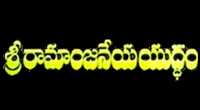
Nee Paathi Naan Paathi Full HD Movie Download
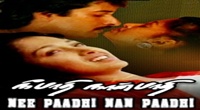
Makutam leni Maha raju Full HD Movie Download
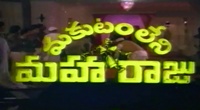
Phir Wohi Darr Full HD Movie Download
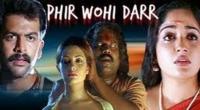
Harry Potter and the Deathly Hallows: Part 1 Full HD Movie Download

Harry Potter and the Goblet of Fire Full HD Movie Download
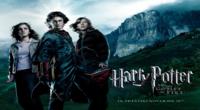
Guru Sishyan Full HD Movie Download
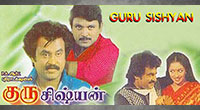
Aayudham Full HD Movie Download
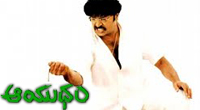
Banamati Full HD Movie Download
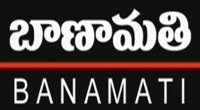
Japanil Kalyanaraman Full HD Movie Download
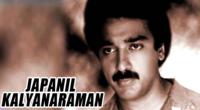
Ankhon Mein Tum Ho Full HD Movie Download
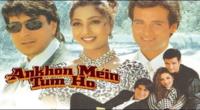
Download latest Movie from bollywood
- 1> baaghi 3
- 2> THE SKY IS PINK MOVIE FULL STORY AND REVIEW
- 3> Luka Chuppi
- 4> TO ALL THE BOYS I’VE LOVED BEFORE
- 5> Kabir Singh
- 6> Street Dancer 3D
- 7> Simmba
- 8> Gone Girl
- 9> The Girl Who Lived
- 10> Ludo
- 11> DILWALE DULHANIA LE JAYENGE
- 12> GUILTY
- 13> The Godfather
- 14> Adventures of Rusty
- 15> Sooryavanshi
- 16> Satyameva Jayate 2
- 17> Thappad
- 18> Bhool Bhulaiyaa 2
- 19> KGFChapter 2
- 20> Mardaani 2
- 21> Pinjar
- 22> Shivaji maharaj
- 23> Ek Villian 2
- 24> Hungama 2
- 25> Divergent
- 26> Mumbai Saga
- 27> The Internship
- 28> HIT (telugu)
- 29> Panga
- 30> The perfect date
- 31> 16 December
- 32> Gopala Gopala (Telugu)
- 33> Brahmastra
- 34> Gangubai Kathiawadi
- 35> Manmadhudu
- 36> Nenu local
- 37> Mahanati
- 38> Shatamanam bavathi
- 39> Lagaan
- 40> After
- 41> MOM
- 42> Shamshera
- 43> Raguvaran BTech
- 44> Khakee
- 45> The villain
- 46> OM
- 47> Mr. perfect
- 48> Bueatifull mind
- 49> Hichki
- 50> Gabbar Singh
- 51> Jogi
- 52> Before Sunrise
- 53> Before Sunset
- 54> Before Midnight
- 55> The Big Bull
- 56> Top Gun: Maverick
- 57> The Purge
- 58> The Sky is Pink
- 59> Laxmmi Bomb
- 60> Sadak 2
- 61> Sufna
- 62> Prithviraj
- 63> PK
- 64> Coolie No 1(2020)
- 65> Black Widow
- 66> Dear Zindagi
- 67> Dil Bechara
- 68> PHIR HERA PHERI
- 69> WAR
- 70> Dostana
- 71> RRR: Roudram Ranam Rudhiram
- 72> Maidan
- 73> Dabbang 3
- 74> Chhalaang
- 75> life as we know it
- 76> SherShaah
- 77> Sandeep Aur Pinky Faraar
- 78> Event Horizon
- 79> 83
- 80> Radhe: Your Most Wanted Bhai
- 81> Gunjan Saxena: The Kargil Girl
- 82> Mr India
- 83> Vivah
- 84> Anokha Bandhan
- 85> Ghost
- 86> Bhoot: Part One - The Haunted Ship
- 87> Haseen Dilruba
- 88> Laal Singh Chaddha
- 89> Qismat
- 90> Rajput
- 91> Drive
- 92> Dil Chahta Hai
- 93> Dil Ki Baazi
- 94> Dil Ka Rishta
- 95> Teesri Manzil
- 96> Dil
- 97> Love Aaj Kal
- 98> Khaali Peeli
- 99> Bunty Aur Babli 2
- 100> Atrangi Re
- 101> Gulabo Sitabo
- 102> Jodi
- 103> Suraj Pe Mangal Bhari
- 104> Deewana
- 105> Attack
- 106> Sardar Udham Singh
- 107> Toofan
- 108> THE LOVEBIRDS
- 109> Jersey
- 110> Ginny Weds Sunny
- 111> Thalaivi
- 112> Shiddat
- 113> Angels vs Zombies
- 114> Koi Mil Gya
- 115> Thank God
- 116> Bhuj: The Pride of India
- 117> Hum Aapke Hain Kaun
- 118> The Platform
- 119> Bird Box
- 120> Roohi Afzana
- 121> Torbaaz
- 122> Nikamma
- 123> World War Z
- 124> Extraction
- 125> Train to Busan
- 126> Life of Pi
- 127> SHAADI MEIN JROOR AANA
- 128> Himmat Aur Mehnat
- 129> To All The Boys: P.S. I Still Love You
- 130> Mimi
- 131> Good Newwz
- 132> Shubh Mangal Zyada Saavdhan
- 133> Raabta
- 134> Harry Potter and the Philosopher's Stone
- 135> Harry Potter and the Chamber of Secrets
- 136> Chhapaak
- 137> War of the Worlds
- 138> Harry Potter and the Prisoner of Azkaban
- 139> Harry Potter and the Goblet of Fire
- 140> MURDER MYSTERY
- 141> Shakuntala Devi
- 142> Bachchan Pandey
- 143> Jayeshbhai Jordar
- 144> Sheer Qorma
- 145> Saina
- 146> 'O' Pushpa I hate tears
- 147> Kedarnath
- 148> MS Dhoni The Untold Story
- 149> Chhichhore
- 150> Badhaai Ho
- 151> Unstoppable
- 152> Oz the Great And Powerful
- 153> The Girl on the Train
- 154> Haathi Mere Saathi 2020
- 155> The Conjuring: The Devil Made Me Do It
- 156> Gandhi Se Pehle Gandhi
- 157> The Song of Scorpions
- 158> Srimanthudu
- 159> Hello Guru Prema Kosame
- 160> Beauty and The Beast
- 161> Black Panther
- 162> Charlie and the Chocolate Factory
- 163> Bole Chudiyan
- 164> Fidaa
- 165> Duvvada Jagannadham
- 166> Bruce Lee: The Fighter
- 167> Hyper
- 168> Yaara
- 169> Red (2020)
- 170> Shivam
- 171> That Is Mahalakshmi
- 172> Nishabdham
- 173> Aashram 2020 web series
- 174> Laxmii
- 175> Mismatched
- 176> STUDENT OF THE YEAR 2
- 177> NAIL POLISH
- 178> Ramprasad Ki Tehrvi
- 179> KAAGAZ
- 180> 12 o Clock
- 181> The Power
- 182> bolo hau
- 183> Tribhanga
- 184> JAMUN
- 185> Madam Chief Minister
- 186> Maasaab
- 187> Aadhaar
- 188> Tanhaji
- 189> Bhaagi 3
- 190> Bhootnath
- 191> MALANG
- 192> Jai Mummy Di
- 193> Haathi Mere Saathi 2021
- 194> Shakeela
- 195> Unpaused
- 196> Annayya
- 197> Vamsoddharakudu
- 198> Mrugaraju
- 199> Narasimha Naidu
- 200> Sankranti
- 201> Manasu Maata Vinadhu
- 202> Anjaane
- 203> Apaharan
- 204> Bachke Rehna Re Baba
- 205> Bewafaa
- 206> Roohi
- 207> Radhe
- 208> Zindagi Khoobsoorat Hai
- 209> Yeh Mohabbat Hai
- 210> Yeh Kya Ho Raha Hai?
- 211> The Tomorrow War
- 212> DehradunDiary
- 213> Meri Shaadi Karaoo
- 214> Matruu Ki Bijlee Ka Mandola
- 215> No One Killed Jesica
- 216> Aag Ka Goola
- 217> Eight Million Dollars
- 218> Three Hundred
- 219> Cats and Dog
- 220> Decoy
- 221> Gold Rush
- 222> You Have Got Mail
- 223> Final Destination three
- 224> Tofan
- 225> Jungle
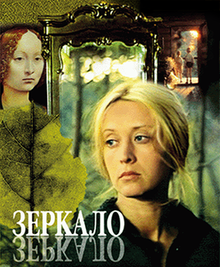 Story of movie The Mirror 1975 Film :
Story of movie The Mirror 1975 Film : 